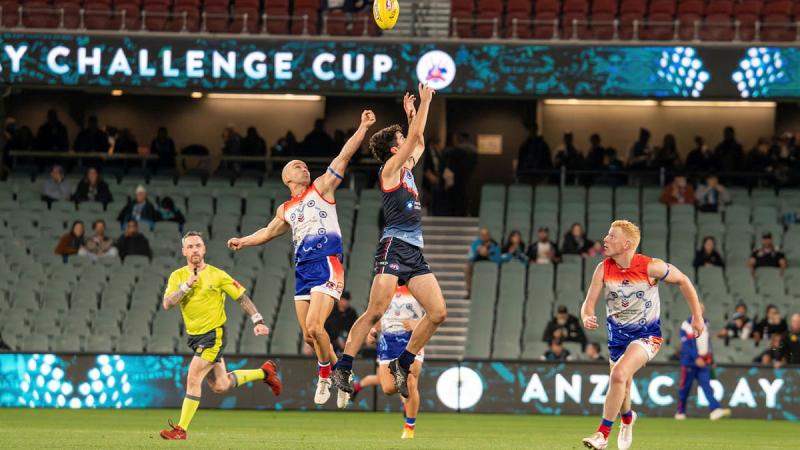: That’s the Naduri welcome song and that’s probably the best time to bring in the Prime Minister. Good morning to you, Prime Minister, welcome to the program.
ANTHONY ALBANESE, PRIME MINISTER: Good morning. I’m looking forward to being back in Mackay today.
PHILPOTT: Absolutely. Popping into Mackay on your way to PNG. What’s happening in Mackay? A bit of infrastructure, I believe. Got an opening there, haven’t we?
PRIME MINISTER: Indeed. We’re opening the first stage of the Riverside Revitalisation Project with the Council. The project is about making Mackay an even better place to live. Just uplifting around the river there. A place for walking alongside or jogging alongside the blue water there or simply enjoying a meal while you have a look at it. But also good for visitors as well, for the city. You might remember I did, when I was a Minister, we upgraded the CBD there. That made a really positive difference and today’s project is a good one, as you say, on the way to PNG where I’ll spend a couple of days on the Kokoda Trail paying tribute to our veterans and the extraordinary people who defended Australia in World War Two and leading up to Anzac Day where, I’ll be at Isurava, with the PNG Prime Minister, James Marape.
PHILPOTT: What about that. So, are you walking in from Kokoda or are you going the Owers’ Corner way?
PRIME MINISTER: No, we’re walking in from Kokoda. Tonight we’ve got a dinner with the PNG Parliamentarians and business people there in Port Moresby, an official reception. And then tomorrow we’ll fly into Kokoda and then hopefully meet up with people back at Isurava for Anzac Day dawn service at 4:30am.
PHILPOTT. So, what, maybe by Friday we could announce, we could probably expect an announcement, you’re going to move South Sydney to Port Moresby and they’ll play in the NRL? Something like that, mate?
PRIME MINISTER: No, no, we don’t want South to move.
PHILPOTT: Not in my backyard.
PRIME MINISTER: We’ve fought too hard to stay where we are. But I do hope that PNG get a team in the NRL. I think it would be extraordinarily positive for the relationship between our two nations. PNG will celebrate 50 years of independence next year and there is no place on earth that is as passionate about rugby league as PNG. The whole country stops when State of Origin’s on.
PHILPOTT: Yeah, say that again. All right, well, look, if I can just jump onto a couple of things, Prime Minister, because I’m really interested in what you’re hearing. One of the really big ones where we are, I’m interested to know what’s filtered down to Canberra regarding the Pioneer-Burdekin Pumped Hydro Scheme.
PRIME MINISTER: We’re certainly very, very aware of it. It will be the largest pumped hydro scheme in the world, acting as like a giant battery, basically, and generating about half of the entire state’s peak usage. So, this is an exciting project. Queensland Hydro has met with officials from the Commonwealth departments. There hasn’t been yet a formal referral to the Federal Government. If there is, the project will go through all the environmental approval processes and community consultation, of course, will be an important part of that.
PHILPOTT: All right. And so as far as you’re concerned, as the PM, it’s in its early stages and it’s jumping its hurdles that it’s got to jump.
PRIME MINISTER: Yeah, that’s right. So, there has been no formal proposals seeking Federal Government support for the project yet, but I’m aware of it because it’s such a considerable project and so it will go through the normal environmental assessments which are required and there’ll be a community consultation process as all part of that.
PHILPOTT: Rightio, and funding, from a funding point of view, how would that work the way the Federal and the States work at the moment Prime Minister? Let’s just pick a figure, let’s just say 10 million, is it 50-50? Is it 80-20? How does that work these days?
PRIME MINISTER: Well, they would have to put in a submission for funding, but we don’t want to get ahead of ourselves. It’s got to get approval first and then we would go through our normal budget processes. Some projects will be, go ahead with entirely Queensland or State based funding. If there is a submission, then we’ll consider it. It’ll go to Infrastructure Australia, like all major infrastructure projects, to get an assessment over what the business case is for it.
PHILPOTT: Okay, all right. And just, this is a question. Now, I checked with everyone at the pub on Friday night, so there’s a bit of science behind this question. And the question they all wanted to ask you this morning was, why is electricity so much more expensive when we’re repeatedly told renewables will make it cheaper?
PRIME MINISTER: Put simply, the world has gone through the biggest energy crisis in 50 years, since the OPEC oil crisis of 1974. And that has had an impact on global prices and that has fed into, there are some positives there for Australia in terms of the dollars that we’ve got for our coal and for our gas, for our resources. But the negative is that that has had an impact on energy prices here. We’re going through a transition. I remember talking with you some time ago about Collinsville, and it never went anywhere, of course, was promised, and I said at the time it was a false promise because the economics just didn’t stack up.
PHILPOTT: Yeah, Urannah Dam we were talking about.
PRIME MINISTER: The market has made its decision. So, the cheapest form of new energy is renewables. And I know that the Queensland Government, that’s why they’re looking at projects like Pumped Hydro.
PHILPOTT: Yeah. Okay and the other one, this came from my wife’s group. It’s a good question too. The supermarket inquiry that’s in front of the Senate at the moment. So, despite what all the findings are, what can the Government actually do, when we live in a capitalist system where the market generally determines, it determines what the costs are?
PRIME MINISTER: Well, what we can do is a number of things. At the moment there’s a voluntary code of conduct. We can make it mandatory so that supermarkets have to comply with the code of conduct. So, there has to be transparency about what the pricing mechanisms are. I think everyone expects that businesses need to make a profit. That’s common sense tells you that otherwise they don’t exist. So, unless the government’s going to go and set up its own supermarkets, that no one’s proposing, then that needs to occur. But where people have been frustrated has been where they see farmers getting less for their produce and then not flowing through to the checkout. So, transparency is really important. I think a mandating of the code of conduct is something that the Government is looking towards. We’ve had an interim report from Dr Craig Emerson, which basically recommended that we go down that track. We’re waiting on the ACCC report as well. But I think already if you have a look at the latest figures and there’ll be more figures out this week, the focus on supermarkets has had a positive impact on prices at the checkout. It is starting to have that pressure flow through, which is what we want to see. We want people to be able to get the cheapest price possible at the checkout. At the same time, we want to make sure that farmers get a fair crack for the produce and goods that they sell.
PHILPOTT: Because the follow up to that is, it’s not like the Government can say, “hey, you’re only allowed to make 25 per cent profit or a 30 per cent profit,” or something like that. Because if you did, then that would go across all businesses in Australia, surely?
PRIME MINISTER: Well, we’re not the old Soviet Union.
PHILPOTT: Exactly.
PRIME MINISTER: I know that there’s been some proposals and talk about divestiture, that you would force some supermarkets, “you must sell your supermarket to someone else.” Well, in most cases, who’s going to buy them? Who’s going to be able to set up businesses, particularly in regional Australia? It has surprised me that the Nats have proposed such a measure because in my local electorate in Sydney, there’s going to be supermarkets – the cost of moving things around and the scale is big enough to ensure that that will occur. There’ll be competition. But in the regions, I can’t see how divestiture would work in practise.
PHILPOTT: All right. And just back to the Track, Kokoda Track. Have you walked the Track before, Prime Minister?
PRIME MINISTER: No, I haven’t. So, it’s with some trepidation that I will take the first step. But I’m really looking forward to it. It is a really practical way to honour and pay tribute to those great Australians who defended our way of life. And when you read about what they went through, they were outnumbered on a massive scale by the Japanese forces heading south. And if Port Moresby, had it been captured, it of course, is less than 1000 kilometres from Australia and the impact would have been devastating. And so, as I speak to you before, I’ll be travelling to the airport immediately when this ends as I speak to you. Literally, where John Curtin left us, tragically, at The Lodge. What a decision that was to bring our troops to defend Australia first to stand up for our nation as John Curtin did.
PHILPOTT: If only the phone call was recorded between Curtin and Winston Churchill, huh?
PRIME MINISTER: It would have a cracker.
PHILPOTT: Absolutely.
PRIME MINISTER: But he did absolutely the right thing and he will forever be regarded, I think, as one of Australia’s greatest ever Prime Ministers. And certainly at our darkest hour, he shone a light for our entire nation.
PHILPOTT: All right, look, I’ll leave it there this morning, Prime Minister, if you could give our regards to Kokoda. We do an awful lot of work over there, the Kokoda Memorial Foundation. Fun fact for you, the archway there at Kokoda was built by a bunch of people from Mackay.
PRIME MINISTER: Okay, fantastic. I will let everyone know on the trip when we arrive there pretty early tomorrow morning.
PHILPOTT: Yeah, and when the guides say “now we go up,” they’re not mucking around. You just go up these massive hills. Wait till you get to Deniki, it’s a view, good on you.
PRIME MINISTER: We’ll be in Deniki tomorrow night. We will spend the night at the campground there. So, I’m really looking forward to it. And there’ll be some members of the current Australian Defence Force travelling with us as well. And that will be a great honour for me as Prime Minister.
PHILPOTT: Prime Minister, thank you so much for your time this morning. And Percy, the studio dog, sends his regards.
PRIME MINISTER: Fantastic.
PHILPOTT: Good on you.
PRIME MINISTER: It’s good to see he’s still kicking around.
PHILPOTT: He’s still here. Good on you. Thank you, Prime Minister. Thank you for your time.
PRIME MINISTER: Terrific.






